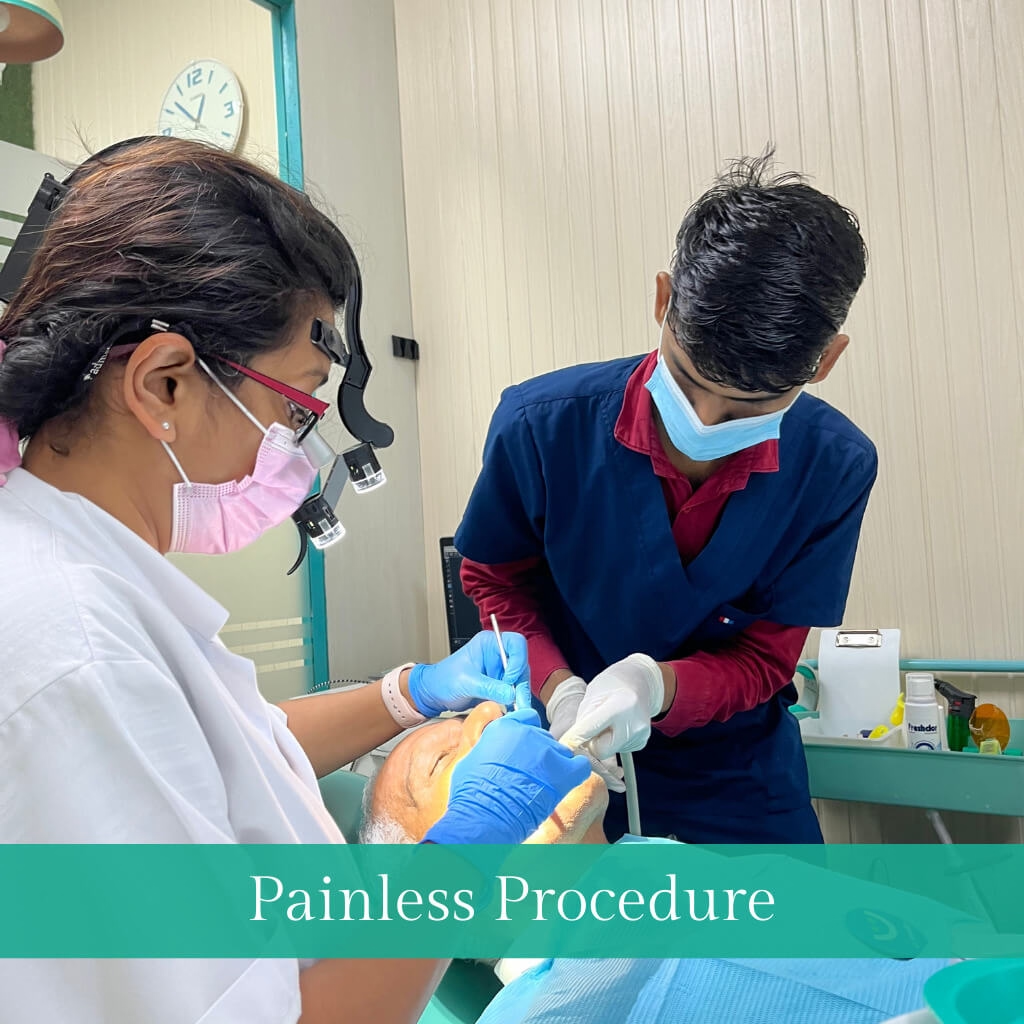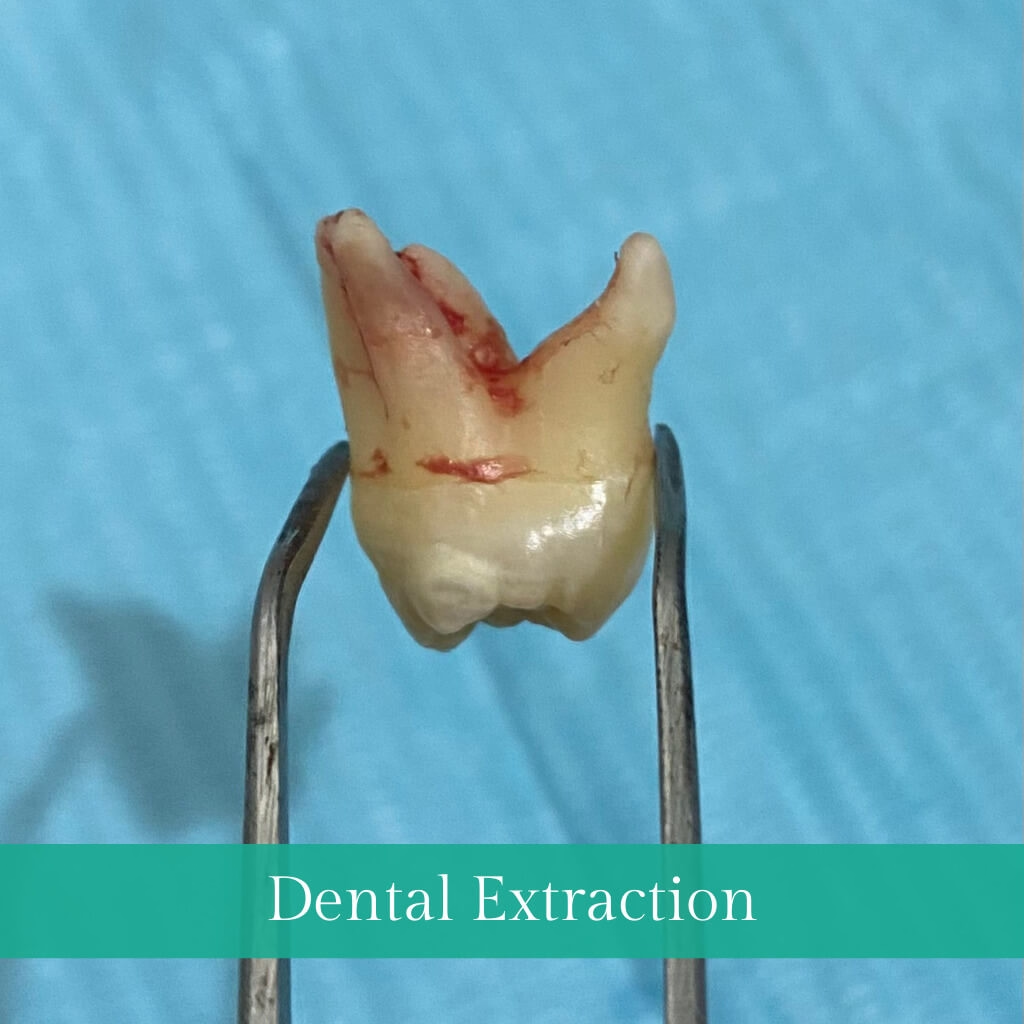Things to Know Before You Get Your Tooth Pulled Out!
Are you facing the prospect of having a tooth extracted? Having a dental procedure can be nerve-wracking, so it's natural to have questions and concerns about what to expect.
At Hope Dental and Esthetic Clinic, we understand that undergoing a tooth extraction can be a significant decision, and it's essential to be well-informed. In this blog, we'll walk you through the key things to know before you get your tooth pulled out, helping you feel confident and prepared for your visit to our clinic.
Read on to find out all you need to know before you get your tooth pulled out.
Key Takeaways
- Tooth extraction may be necessary for various reasons, including decay, damage, infection, gum disease, and orthodontic treatment.
- Wisdom teeth may need to be extracted if they cause pain or grow incorrectly, leading to infection and misalignment of other teeth.
- The 2 types of tooth extraction procedures are simple extraction for visible teeth and surgical extraction for partially or completely covered teeth.
- Anaesthesia or sedation may be used during the extraction, depending on its complexity. The risks and benefits should be discussed with the dentist.
Why is tooth extraction necessary?
If a tooth is extensively damaged or has severe decay, it may require extraction. Tooth extraction can be necessary to remove infection, treat gum disease, or prepare the mouth for orthodontic treatment.
There are several reasons why a tooth may need to be extracted:
- Tooth Decay: Severe tooth decay or cavities that have damaged a tooth beyond repair may necessitate extraction.
- Gum Disease: Advanced gum disease can result in tooth loosening due to loss of the supporting bone around the tooth, making extraction necessary.
- Impacted Wisdom Teeth: Wisdom teeth, often referred to as third molars, may become impacted, resulting in discomfort, infections, or crowding of neighbouring teeth.
- Overcrowding: In some cases, tooth extraction may be required to create space for orthodontic treatment.
- Trauma: Teeth that have been severely damaged due to accidents or injuries may need to be extracted.
- Infection: Untreated dental infections can lead to abscesses (pus formation), which may require extraction.
- Preparatory for Prosthodontics: Teeth may be removed to make way for dental appliances like dentures or implants.
Is extraction required for all wisdom teeth?
Not all wisdom teeth require extraction. However, it's important to understand why some do. Generally, if a wisdom tooth cannot grow correctly or is causing pain, extraction may be necessary. Impacted wisdom teeth, trapped beneath the gums or in the jawbone, can lead to infection and decay in adjacent teeth and affect the alignment of other teeth. To prevent these issues, your dentist may recommend removing the wisdom teeth.
What kind of tooth extraction procedure will I undergo?
Tooth extractions come in two main forms: simple and surgical.
- Simple Extraction: This type is performed on visible and easily accessible teeth. The dentist uses an elevator to gently release the tooth before extracting it with forceps.
- Surgical Extraction: Surgical extractions are more complex and are typically used for impacted or hard-to-reach teeth. The dentist or oral surgeon may need to make incisions, remove bone, or divide the tooth into sections for extraction.
The type of extraction you need depends on the position of your tooth, as well as other factors, such as the severity of tooth decay and the number of roots the tooth has. The actual extraction process is usually completed in one visit and may involve some discomfort.
Your dentist at Hope Dental & Esthetic Clinic will provide you with instructions on how to prepare for your treatment and what to expect before, during, and after the extraction.
What should I anticipate during the extraction procedure?
The process can vary depending on the type of tooth being extracted, the reason for extraction, and your specific dental situation. Here's what you can generally expect during the tooth extraction process:
- Evaluation: The dentist will examine your tooth and take X-rays to assess its position and any potential complications.
- Anaesthesia/Sedation: The type of anaesthesia you receive during the extraction procedure will depend on its complexity and aim to provide you with a comfortable and pain-free experience.
- Extraction: The dentist will perform the extraction using the appropriate technique (simple or surgical) while ensuring minimal damage to surrounding tissues.
- Stitches: If necessary, the dentist may place stitches to close the extraction site. This will prevent the entrapment of food particles in the extraction socket and also make healing smoother due to a close approximation of the gum tissue and a decrease in the size of the wound.
Will anaesthesia or sedation be administered before the extraction?
The decision to administer anaesthesia or sedation before a tooth extraction is based on several factors, including the complexity of the extraction, your medical history, and your personal preferences. Here are the common options:
- Local Anesthesia: This numbs the extraction area, and you remain fully awake during the procedure.
- Conscious Sedation: You will be relaxed and less aware of the procedure, often using medications like nitrous oxide or intravenous (IV) sedation.
- General Anesthesia: Reserved for complex cases, this option renders you completely unconscious during the procedure.
Your dental specialist, Oral Surgeon at Hope Dental & Esthetic Clinic, will evaluate your case and discuss appropriate anaesthesia or sedation options with you. Make sure to communicate any concerns or fears you have about the procedure so that our experienced dental team at Hope Dental & Esthetic Clinic can provide the most appropriate care for your needs.
What is the anticipated recovery and downtime post-extraction?
Immediate Recovery (First 24 Hours)
In the initial 24 hours after the tooth extraction, you can expect some bleeding, discomfort, and mild to moderate pain. Your dentist may provide gauze for bleeding control and recommend pain medication. Swelling is common, so applying ice is helpful. Stick to a soft diet and get plenty of rest.
48 Hours After Extraction
Pain and discomfort should begin to improve. Swelling may persist but gradually decrease. You can start incorporating semi-soft foods into your diet. Be cautious with oral hygiene, avoiding the extraction site.
1-2 Weeks After Extraction
The extraction site will continue to heal. Pain and swelling will subside almost completely. Return to your normal diet if it doesn't irritate the healing site. Gently resume regular oral hygiene, avoiding the extraction site. Any sutures placed are removed during this time as advised by your doctor.
Long-Term healing (3-6 Weeks)
Over the next few weeks, the extraction site should continue to heal and may fully close.
Recovery can vary, but most people can resume regular activities within a day or two after a simple extraction. Surgical extractions or complex cases may require more time for recovery. Adhering to your dentist's post-operative instructions is essential to ensure proper healing and minimize complications. If you experience severe pain, excessive bleeding, signs of infection, or other concerning symptoms, contact your dentist promptly for evaluation.
Conclusion
In conclusion, understanding the process and post-extraction care is crucial before you get your tooth pulled out. At Hope Dental and Esthetic Clinic, we prioritize your comfort and dental health during this procedure. Being informed and following our expert guidance can make your tooth extraction a smoother experience, ensuring a healthy, pain-free smile in the days to come. Trust in our team's expertise for a successful tooth extraction journey.
Book your appointment today!




